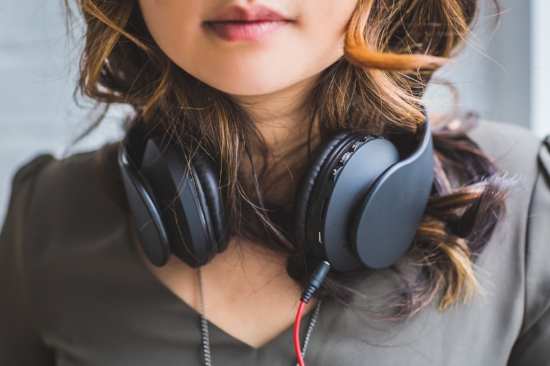Can Music Help Depression?
Music can profoundly affect mood
You may be surprised to learn that there are more than 7000 different languages spoken across the planet. And while most of us will only master a few of them in our lifetime, the one universal language of our world is decidedly music. Regardless of our culture or background, we all experience an emotional response to various chords and melodies and now there is substantial scientific evidence supporting the notion that music can play a role in the improvement of mental health.
MUSIC THERAPY FOR DEPRESSION
The concept is certainly not new. Ancient Greeks are said to have used music for therapeutic purposes and today, a growing body of research reveals that music therapy can be an effective adjunct to traditional treatment.
A study published in the British Journal of Psychiatrist followed 79 individuals ages 18 to 50 who were diagnosed with depression. Forty-six of the participants received traditional care including therapy sessions, medication, and psychiatric counseling. The remainder received the same treatment, but also experienced bi-weekly music therapy sessions. Those sessions allowed the participants to create music with a rhythmic mallet instrument, an acoustic drum and a percussion instrument. After just 3 months of treatment, the music therapy group showed a significant improvement in depressive symptoms compared to those in the control group.
Additional studies are revealing that music therapy may provide multiple benefits for individuals struggling with depression and anxiety:
Reduced muscle tension
Increased self-esteem
Decreased anxiety
Enhanced personal relationships
Increased motivation
Safe emotional release
HOW MUSIC THERAPY WORKS
Music therapy (also known as active music therapy or passive music therapy) has also shown promise in improving function, helping to stimulate creativity, and even in improving communication between patients and caregivers.
An active session allows the patient and/or therapist to create music spontaneously. The patient is guided in sharing thoughts and feelings that come to the surface allowing insight into thoughts and behaviors. In passive therapy, individuals listen to music while in meditation or reflection. The therapist and patient can then explore the memories and emotions evoked by the music.
So why exactly does it work? Theories abound, but there are some basic fundamentals. Experiencing music in a therapeutic environment can help an individual to express themselves on a deeper level. Scientists believe that a select combination of melody, harmony, and rhythm can promote a sense of calm by slowing breathing rate, heart rate and other body functions. Combined with talk therapy, music can help to boost levels of our "feel good" hormones, thereby stimulating freedom of expression and clarity of thought. In fact, review of nine studies involving more than 400 participants found that music therapy was effective in "decreasing anxiety levels and improving functioning of depressed individuals."
Another recent study conducted by researchers at Bournemouth University, explored the effects of music therapy in treating depression among children and adolescents. Results showed that those who received music therapy in addition to talk therapy had substantially improved self-esteem and significantly reduced depression symptoms compared to the children who received treatment without music therapy. Those in the music therapy cycle also showed improvement in communication, social function, and interactive skills.
Psychiatrist Michael Crawford highlights several reasons that may explain why music therapy can be effective. He states that, "first, it provides a sense of meaningfulness and pleasure—music is an aesthetic experience that draws in the otherwise passive patient; second, this kind of therapy engages the body and gets people moving—the physical participation averts depression; and finally, it is relational, in that music helps us engage, communicate, and interact with others. We are hardwired to connect and be social, and music allows us to do that."
BOTTOM LINE
According to science, music is processed in every area of the brain and seems to have the ability to stimulate areas of the brain that may not otherwise be accessible. Music appears to enhance and strengthen the brain, allowing for greater efficiency in cognition, communication, and use of motor skills. Utilization of music therapy has been shown add significant value to standard forms of psychiatric treatment with or without psychopharmacological support. If you're struggling with your mental health, be certain to connect with a qualified professional - and mix in some music!

